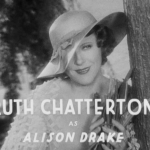 |
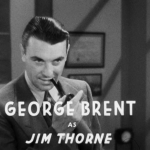 |
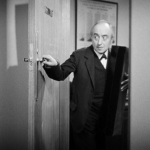 |
| Alison Drake Ruth Chatterton |
Jim Thorne George Brent |
Pettigrew Ferdinand Gottschalk |
| Released by Warner Bros. | Directed by Michael Curtiz |
||
Proof That It’s Pre-Code
- A woman auto executive spends her days working hard and her nights letting a parade of studly men do all the hard work.
Female: Trickier Than the Male
“To me, a woman in love is a pathetic spectacle. She’s either so miserable that she wants to die or she’s so happy you want to die. […] You know, a long time ago, I decided to drive the same open road that men travel. So I treat men the exact way they’ve always treated women. […] I know for some women, men are a household necessity. Myself, I’d rather have a canary.”
I missed the boat on this one. The first time I saw Female all the way back in 2010, it left me sad and confused. (As, erm, many women have done, to be perfectly honest, so I guess that was appropriate at the very least.) It’s a movie about fakery and seduction, about getting what you want and exactly what wealth lets you get away with. The stunning fact that it stars a woman as a bon vivant sexual connoisseur is what makes it a definitive pre-Code.
Alison Drake is the CEO of the sprawling Drake Motors. She assumes the role after her father’s passing, and, even though it’s constantly wracked by the woes of business and the glowering Depression, she remains a well-regarded and highly respected boss. The only people who don’t feel that way are her men. She wanders the factory, finds a beaut, and invites him back to her gorgeous deco mansion to talk ‘business’. They arrive, happy for the chance to enthusiastically present their ideas to the boss, only to have her smile a sly smile and ask “Are you naturally enthusiastic?” before she throws a pillow on the floor.
Throughout the film, slow, lusty strains of a “Shanghai Lil” instrumental (from Footlight Parade) drifts along. It’s a song about a sexy siren who destroys men that plays as a winking accompaniment to seduction. She also orders vodka to get her conquests in the right mood– as her butler notes, “It was the custom of Catherine the Great to send Vodka to her soldiers in order to… fortify their courage.”
Besides Catherine, Alison also gets compared to Napoleon at one point– she takes what she wants with feverish glee. Alison loves this life. Work all day, relax all night. A visiting college pal who has settled down with kids and a husband implores her about her about her circumstances, and she responds with that speech up at the top of this review.
The movie is playful with how this attitude affects her life and job rather than the usual straight condemnation of it. If a male employee becomes attached, they get transferred to Canada. One female staff member, complaining about men, is told by Alison, “You wouldn’t have these problems if you were a fallen woman!’
But the most striking effect of Alison’s carnal Sherman’s March is on Pettigrew, a toady old man who serves as her personal secretary. He oscillates between being a paternal figure offering advice and a degenerate sex cheerleader run amok. He crows about Alison, “She’s the only honest woman I’ve ever met.” And it turns him on something fierce. He even expresses this sadism as he flirts with another secretary, played by Ruth Donnelly, essentially replaying his boss’ own sexual harassment policies step by step.
Drake’s carefree life seems to be progressing fine as she remains the master of her domains until one late night party at her mansion finds a dozen or so entreaties from the usual gaggle of pigheaded men. The encroaching sense that her sexual proclivities are controlling her life rather than the other way around sinks in, and she decides to sneak off to the city to join in with the crowd, King Vidor-style. She gravitates toward a shooting gallery. Seeing a handsome crack shot, she picks up an air rifle of her own and meets him at a toe-to-toe battle– though he delivers the finishing shot. A dizzy night of hot dogs and dancing leaves Alison with blue balls when the man waltzes away at the end of the night. He gets under her skin.
Back at work and feeling mostly refreshed from her night of slumming, Alison is delighted when she meets an engineer her firm has poached– it’s the man from the night before, Jim Thorne (Brent). He seems to have some feelings left over and agrees to attend to her mansion that evening, only to do a very unusual thing: he turns her down. He’s resistant to her charms, her pillows, her vodka. “I was engaged as an engineer,” he growls. “Not as a gigolo.”
Shaken, Alison turns to Pettigrew.
“Look here. What kind of a woman do men like? How do they want them to act?”
“Well, that depends. A man of Jim Thorne’s type, for example, wants a woman who looks up to him. Gentle. Feminine. Someone he can protect. That’s because Jim Thorne is strong. And rather primitive, perhaps. A dominant male, my dear.”
“Gentle and feminine, eh? Heh. So that’s what they want. Well… we strive to please.”
Most films would have had Alison reform, learn her lesson, and pay for her sins. Instead, she assesses and readjusts. She is a businesswoman, after all.
Luring Thorne to a campsite, she plays meek, forcing him to come to her aid. She adopts a gentle, wispy manner as she carefully tells him she’s out there because, “I wanted to get away from everything civilized.”
He buys the act completely, and of all the versions of Alison he’s seen so far, she’s the one he falls for the most. Which is fine for a night of lovemaking, but the next morning he arrives in her office to find her back to boss mode. He’s disappointed to have his dreams shattered, especially once he begins to figure out what number on the clicker he really is. He lacerates her, finishing his bruised male ego rant with, “If you weren’t so pathetic, you’d be funny.”
The climax arrives fast and hard (cough), and Alison is soon confronted with her company defaulting and getting taken over by an unfriendly rival. She can’t concentrate though, Thorne’s words still ringing, and she rushes into her office to mope. Paternal Pettigrew grins his sickly smile, gloating about her emotional breakdown, claiming he’d predicted it all along. (Notably, this actually contradicts a scene earlier in the movie where he predicted her sexual onslaught would ever be waylaid– more on that in a minute.) “You’re just a woman, after all.”
And right there is where we reach the switch.
Spoilers.
There’s a problem with this movie, and that’s that it’s filmmakers were terrified of having their cake and eating it too. It’s hard to blame them– the censors hated the movie for all of its loose carnality, and an ending where Alison shrugs over Thorne only to return to her hypersexual ways may have seen riots in the conservative 30s. Thorne and Drake have to end up together and leaving the Drake as the head of an industrial giant is similarly shaky– she has to learn a lesson, right?
How do you solve that? The filmmakers were caught in a jam of how to take this powerful, incredibly smart woman and make her into a subservient wife who yearns for quiet and children as we close out. That’s what you have to do. The only other option is noble airplane suicide, and since we’d already seen that in three other pre-Code releases, it’s safe to say that the trope was wearing thin.
So they subvert it. They give the audience the humbling of Alison that they demand, making her a woman first and a businesswoman not at all. But they do it by having her assess and readjust, becoming that wisp that seduced Thorne before and this time promising him her business and whatever else will make him stick with her. She does love him. But it’s hard to believe such a competent businesswoman with such a deft skill in the boardroom would suddenly chuck it all away.
That’s where the subversion comes in big time. Alison hunts down Thorne, who’s angrily run away, to a shooting gallery at a carnival. Check out the sign next to his head as we’re headed towards our romantic resolution:
Yes, take home a pig. As Alison promises to go completely submissive if Thorne will come back to her, she gets what she really wants– him to support her as a boss, as a leader. The film probably could have ended here, but instead Alison tosses that away, giving him control of Drake Motors. But that only happens after Thorne gets his prize, a squealing black piglet that drowns out a good bit of dialogue as we settle in the film’s final minutes.
It’s very easy to read the film’s finale as genuine. Plenty of movies from 1933, before, and most certainly after suggested that a woman’s place was in the home, and that situation was just sweet, simple contentment bar none. And, hell, that’s how I read it the first time I watched the movie. But with that squeal, with that nudge in the ribs, Female becomes not just about a powerful woman but the absolutely ludicrous and horrid things we expect to see happen to them. They have to pay a price, right? The filmmakers say that you, the audience, demand Alison be humbled for the simple act of being successful and sexual. So here you are. Fucking enjoy it.
End spoilers.
Female‘s view of men is dim, to say the least. They’re power hungry most of the time and see Alison not just as a sexual partner but a cash machine. Pettigrew is really a wonderfully vile creature who seems so kind until you see just how much of Alison he adopts in order to feed his own perversions. Thorne tries to see things Alison’s way, but is too caught up in her deceptions and his own ego to really understand what makes her happy. (Hint: it’s fucking.) The only man who seems to honestly admire and respect her with anything between his legs is her chauffeur, who (to borrow a line from Duck Soup) fought for her honor, which is certainly more than she ever did. The women of the movie admire her, but all remain skeptical at best. Alison Drake’s views on life and the world are ridiculous– joyful sex and a successful career? Absurd.
Female loves Ruth Chatterton’s radiance. We’re constantly treated to her undressing and being groomed, becoming this– thing. It’s not a monster, even if it’s easy to read her as more than a bit depraved. But there’s something honest to it that her eyes project. She’s a maneater, but one who knows it and is unafraid of who she is. It’s seductive, and maybe it’s appropriate that the movie ends with the ridiculous bow that it does. Alison Drake may just be too good for this world– and, 80 years later, she still seems that way.
Gallery
Hover over for controls.
- “Can anybody help poor widdle old me?”
Trivia & Links
- A more in-depth discussion of this movie is available in second issue of The Pre-Code Companion. You can also see other available issues and topics covered in the series by clicking here or on the banner below.
- Mad props to Jenny G. in the comments for being the first person to point the pig thing out to me, which I’m still slapping my forehead over.
- This one has a peculiar directing history. It was initially undertaken by William Dieterle before the director took ill. William Wellman shot most of the film, but was busy with College Coach when Jack Warner demanded retakes of several scenes to insert Johnny Mack Brown in. Michael Curtiz did those retakes (and possibly refilmed more– sources are sketchy), and through a process I’m not sure anyone understands, ended up with the sole directorial credit on the film. Because of that, you can make yourself a fun parlor game out of guessing the director for each scene, but the fact that the film– up to the last 10 minutes– feels wholly smooth speaks to the genius of the Warner Bros. system and the skill of the three men to integrate their styles so well.
- Ruth Chatterton and George Brent were married when this film was made. They also worked together in The Rich Are Always With Us, The Crash, and Lilly Turner.
- As per Sin in Soft Focus, Dr. James Wingate of the Studio Relations Committee heavily objected to the film, explaining that it left little to the imagination. He protested to Warner Bros. who did nothing to alter the film’s content at the time of it’s release. Because of the suggestions of Alison’s nocturnal activities, the Production Code Administration recalled all prints of Female and refused it reissue when the Code became enforced in July 1934.
- The exteriors for Alison’s mansion are those of Ennis House. Designed by Frank Lloyd Wright, the house has appeared in movies such as House on Haunted Hill (1959), Day of the Locust (1975), and Blade Runner (1982). You can check out a gallery of the home’s unique style here.
- Besides the constant referencing of “Shanghai Lil” from Footlight Parade, at various times characters can also be caught singing “Shuffle Off to Buffalo” and “You’re Getting to Be A Habit With Me” from 42nd Street. When Alison is getting the lowdown on Thorne’s activities from a private detective, it’s mentioned that he caught a show of Picture Snatcher. (All of these, of course, are other Warner Bros. movies– the only non-Warners reference is someone tossing a sly “Come up and see me sometime!” from Mae West’s bag of catchphrases.)
- Speaking of Footlight Parade, there’s a rumor that Alison’s giant pool is a repurposing of the pool from the “By A Waterfall” number from that film. What do you think?
- Mordaunt Hall’s review in The New York Times explains, “It would undoubtedly be rather difficult to find in real life a prototype of Alison Drake, the dominant figure in “Female,”” but adds “Miss Chatterton acts with the necessary flair for the role.”
- For anyone viewing this post-2016, I updated this review from its original state with more pictures and a complete rewrite. Here’s the original version for posterity, but you really don’t have to read it:
Ruth Chatterton is Allison Drake, the CEO of Drake Motors. Picking up where her father left off, she’s a tough and demanding executive, putting every employee in his place, bragging that she treats men, “the exact same way they treat women.”
But that works for both the boardroom and the bedroom. At night, she invites the men back to her luxurious home, rings for the vodka, and begins her seduction on any underling who has a nice body. The next day she coldly tells them it was a one night thing, and, if they want her advice, it’s best not to dwell.
Female sounds exactly like a movie that was made 80 years ago: a woman in charge of a company?! Incredible!
But, as silly as that sounds, Female actually manages to titillate today. Practically every woman-in-power movie I’ve seen has had some sort of Disclosure taint; rarely movies with women in power are about women with power.
Ruth Chatterton does an impressive job avoiding this trap for about sixty of the film’s seventy minutes. She’s tough and narrow minded– she wants to run her company with an iron fist and she wants to fuck every man with a square jaw.
The latter is told with the usual Pre-Code frankness that is both saucy and sly. An old college friend worries that Chatterton is lonely. She replies, “Oh, I see lots of men. But I’ve never found a real one.”
Later, she brings home a new idea man that brags about his college football career and looks about as dopey as you expect. He’s trying to talk her into having the factory workers chant each morning to work up their enthusiasm. Chatterton grabs a pillow off the couch and throws it onto the rug. She murmurs, “Are you… naturally enthusiastic?” Hot damn.
Power creates a certain type of person, and Chatterton does a perfect embodiment. She’s cool and confident but conflicted. She snaps at one function, sick of the sycophantic wives and the gold digging men, and decides to head into town and hide-out among the common folk.
The story soon takes a stereotypical turn, as she falls in love with a man who treats her kind of rough since he doesn’t have to impress her. He soon finds that she’s his new boss, and things become uncomfortably frosty. She tries her seduction technique of vodka and a dress that makes men weak in the knees but nothing doing. She seeks consolation in a friend and discovers this new man must be A MAN. He’s too manly to accept having a woman as a boss and a lover.
It’s the ones who say “no” who drive you mad, though. It’s here that the movie flies off the rails, though you can’t be too surprised. After Chatterton decides to play meek as her new tactic, the man, Jim, instantly asks for her hand in marriage, glad she’s given up her career to be his wife. She says that isn’t part of the bargain, and he bolts. She is mortified; in a completely sudden turn of events, the company is in crisis, and they need a bank loan to keep making cars, only some CEO is a woman and the banks don’t like that. Chatterton panics and says she no longer wants to be a woman CEO, but just a woman!
She rushes out of the room, and her butler comes along with a smarmy ‘told you so’. Chatterton, realizing she’s a sap, pulls herself together enough to rush back into the boardroom and outline a daring plan involving her flying to New York and finding a bank there that will subsidize Drake Motors’ crisis.
Only she doesn’t take the flight, instead deciding to chase down Jim and confess her love. When she finds him, she gives him the business, as he vows to fly to New York.
The ending to Female isn’t so much the axiom of having your cake and eating it too but rather having a buffet and vomiting it all over the table afterward. The movie completely loses the character of Drake as she cycles between a rather unlikely love for one man and the company she runs; throwing in things like the bank crisis so sudden and so late in the game is a cheat to force her to choose (and make her look like a bad CEO), and the romantic drama cliches that the movie finishes with are so unforgiving that you can hear the gears grinding off-screen.
But I still can’t dislike Female in spite of its late game identity crisis. The first act has Chatterton so in command, so alive, that it’s deafening when the third act reaches the runway and just explodes.
- More screengrabs and an evaluation of the film’s print over at DVD Beaver.
- One last note from me: Chatterton’s outfits in this movie are fantastic. Worth watching for that alone.
- The film’s saucy trailer:
Awards, Accolades & Availability
- Available in Forbidden Hollywood Volume 2, along with The Divorcee, A Free Soul, Night Nurse and Three on a Match.
Comment below or join our email subscription list on the sidebar! |
||
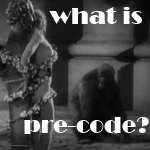 |
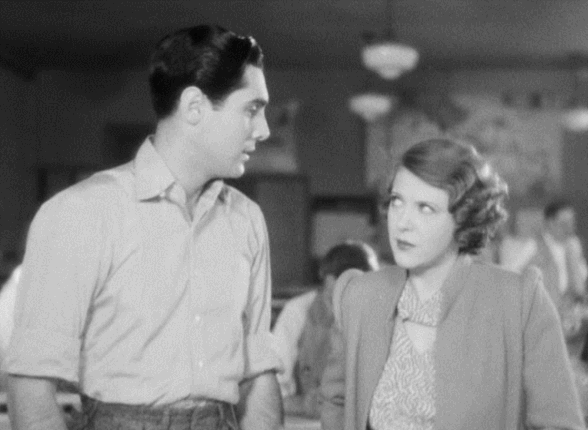 |
 |
 |
 |
|

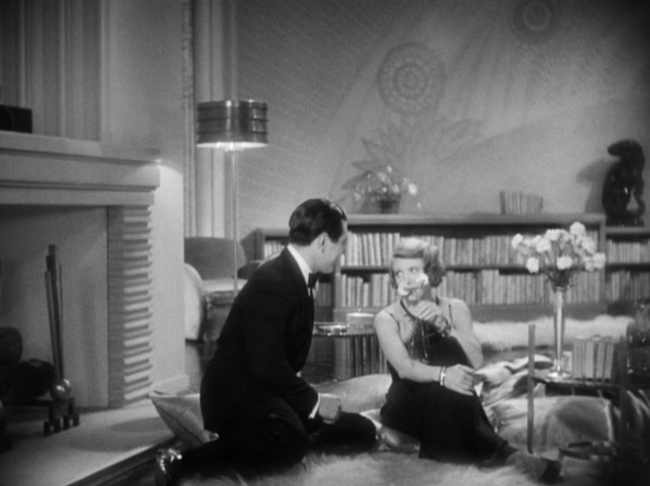
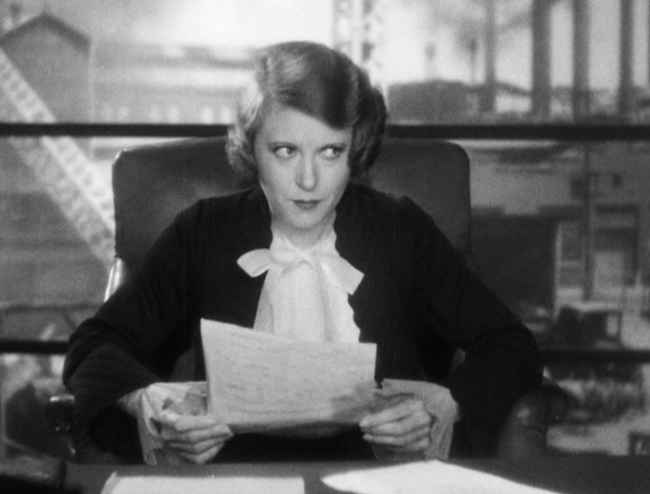
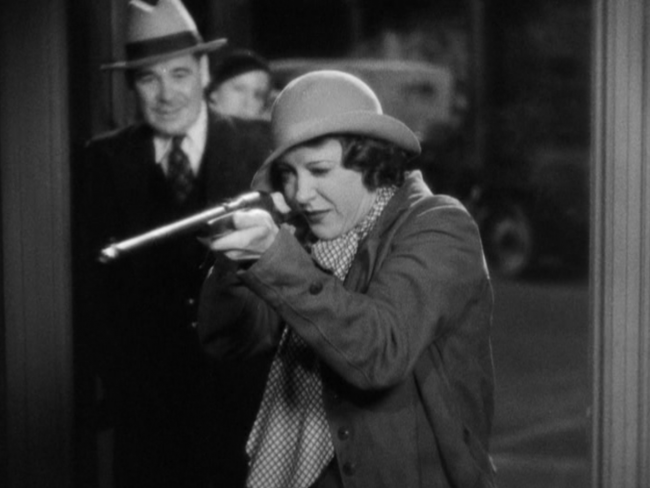
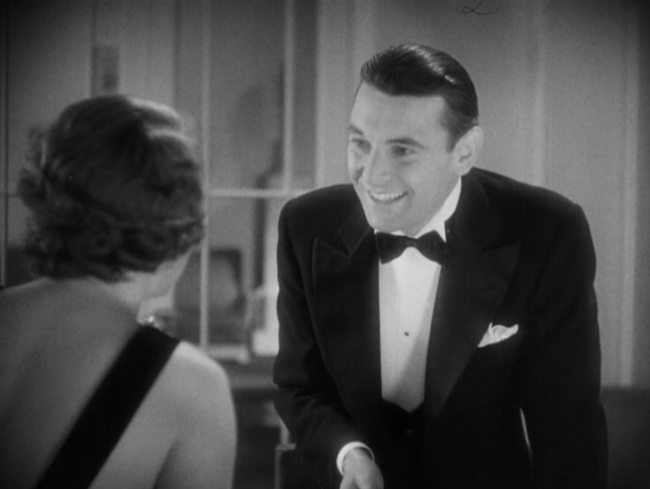
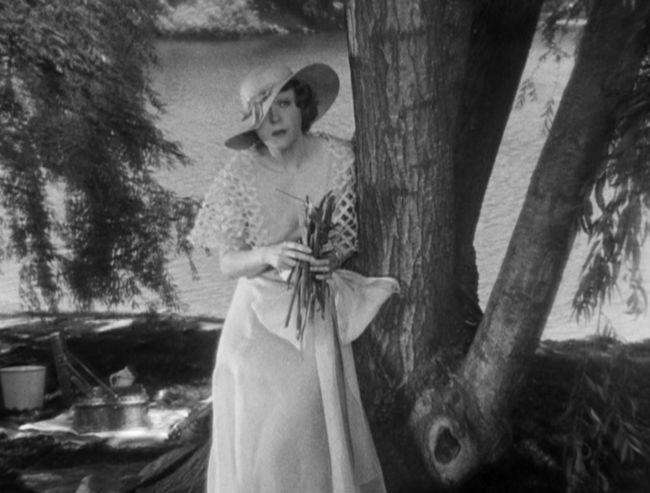
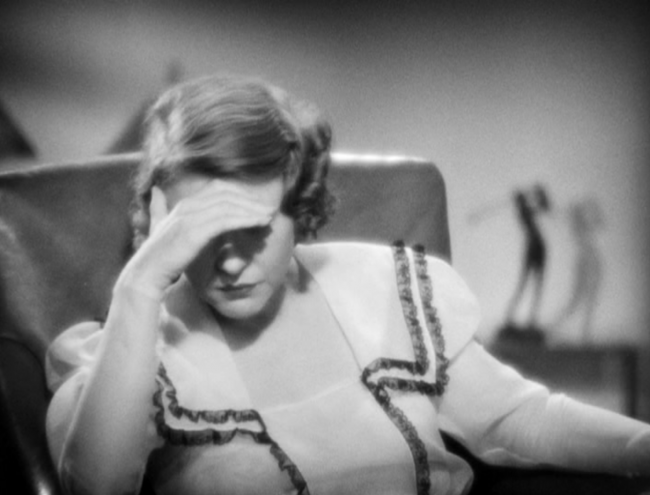
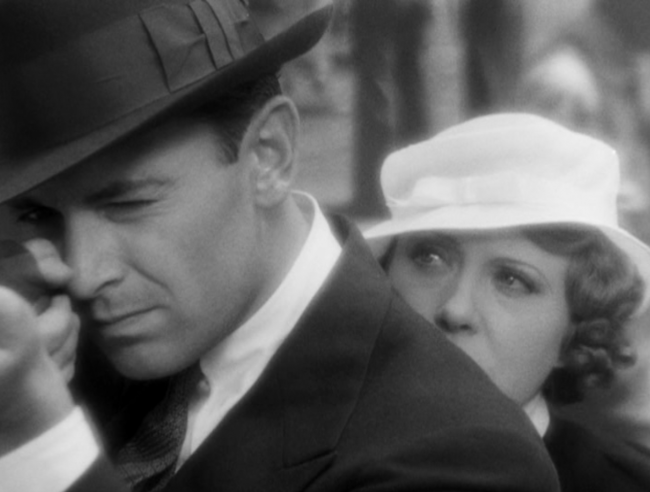
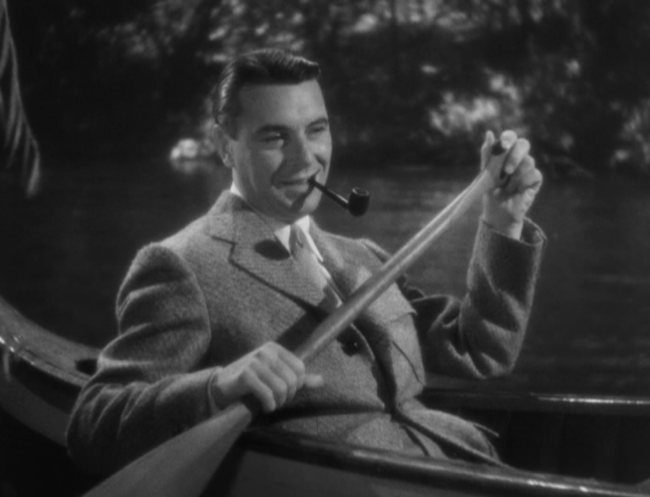
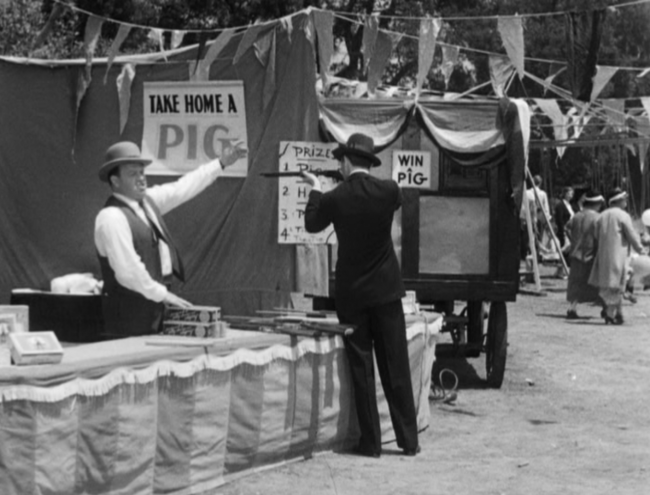
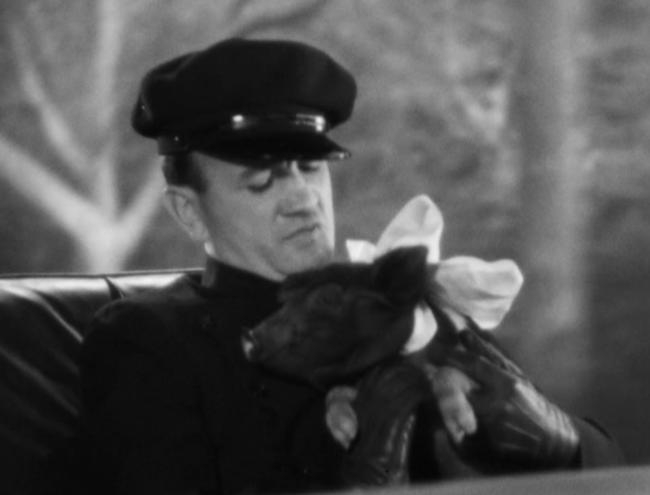
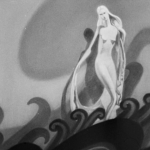

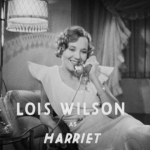
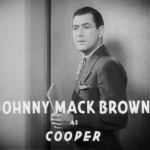
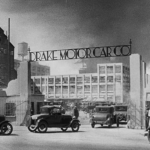
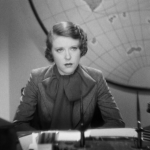
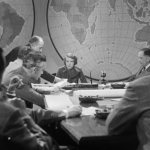
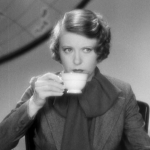
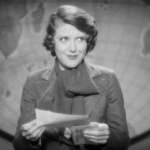
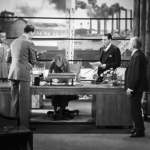
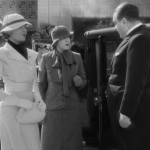
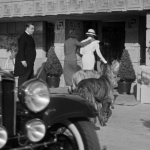
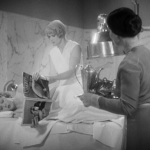
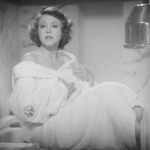
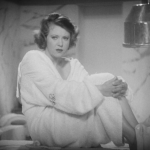
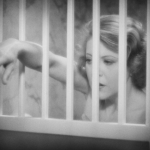
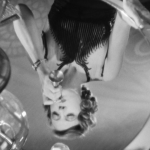
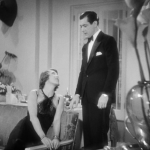
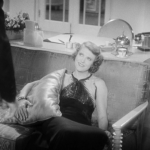

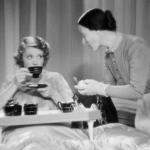
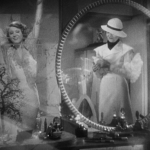
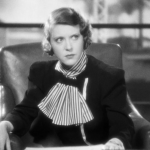
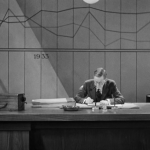
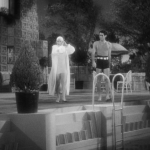
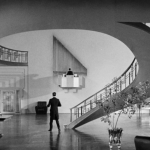
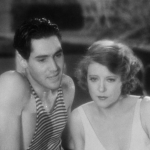
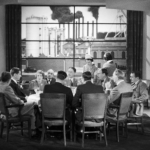
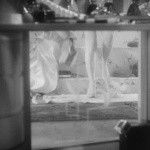
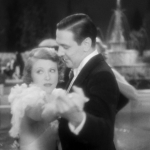
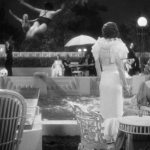

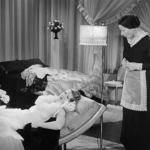
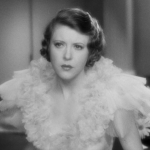
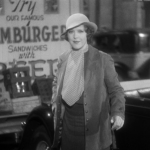
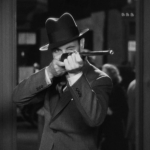
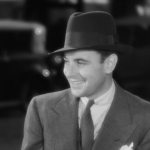
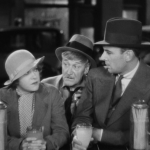
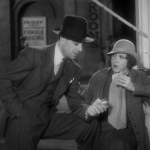
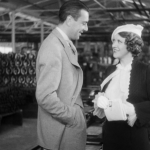
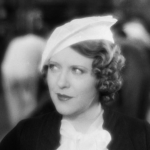
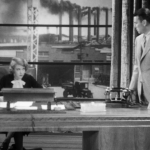
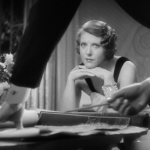
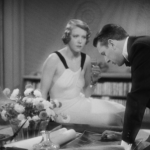
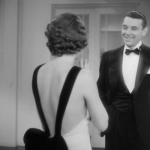
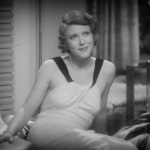
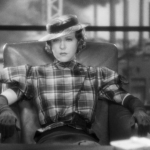
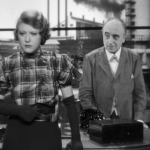
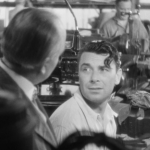
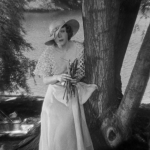
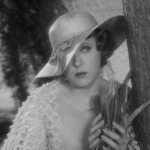
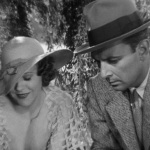
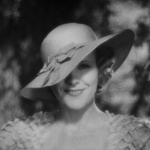
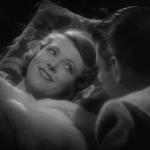
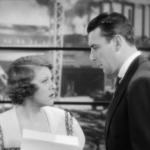
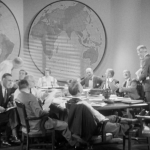
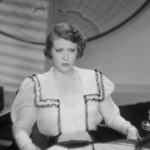
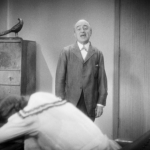
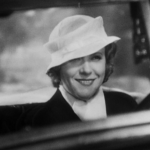
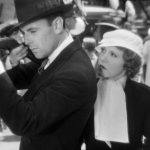
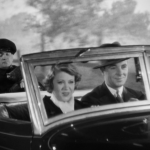

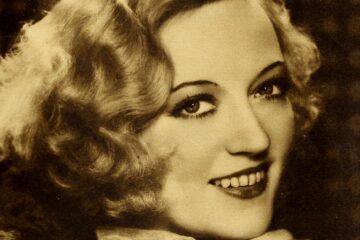
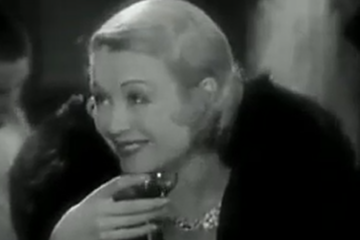

10 Comments
Tobias (@nicsopana) · April 29, 2013 at 3:42 pm
I watched “Female” today and I’m still upset about the awful ending. Even for classic Hollywood it was extremely reactionary and illogical. Wasn’t so angry about a film finale for a long time.
But I agree that Ruth Chatterton was great as the confident CEO. I guess next time I’ll watch this movie I’ll stop right after she sees Brents character in her office.
Danny · April 29, 2013 at 4:28 pm
It’s tragic, right? A lot of Pre-Codes handle the ‘woman with power’ handle a lot better, but Chatterton in the first half of the picture may be one of the most progressive heroines of the era. And then, as if someone read the script halfway through and just has a complete and utter meltdown. At least in most other Women With Power pics, the woman at least nobly sacrifices herself. Here the scriptwriters threw her off the cliff.
Tobias (@nicsopana) · April 30, 2013 at 3:28 pm
Yeah, I wouldn’t be so upset if the first half wasn’t so good (bad film with a bad ending? So what, not worth to worry about). Even ignoring the awful conservative world view it propagates the last third was awful written. Hurrying to the desired resolution without any logic.
It’s the good movies that suffer most of the often reactionary solution in classic Hollywood. As much as I love those films I find it often hard to swallow the finale, when the women give up all independence. Or she decides for the top-billed star just because the other one shows a flaw introduced out of the blue in the last five minutes. Sometimes I wonder if I should stop watching five minutes before the end to remember a perfect film.
Danny · April 30, 2013 at 4:12 pm
I was reading Doherty’s book this weekend, and he makes special note that 75% of the audience for pictures at the time was likely women. He further notes that women loved these sort of plots, and labels them as sadists; they loved seeing the independent woman eventually get her wings clipped and find a wonderful man to take care of her. From a more modern sensibility, it’s sad; back then, that was the dream.
If you need something you don’t have to quit on with five minutes to go, check out Red Headed Woman if you haven’t. Harlow ain’t the head of a conglomerate, but she sure destroys ’em pretty easily.
JennyG · June 10, 2013 at 5:54 am
Hmm, I say the ending is transgressive by giving the audience the conventional misogynist ending without allowing them to buy it. Jim is the WORST. He’s the consummate killjoy. And when Allison throws it all away to hitch her star to that wagon, A PIG SQUEALS THROUGH THE WHOLE SCENE. Surely we’re meant to laugh at the convention? At movie execs who demand that kind of ending? At the moviegoers who desire that kind of asinine resolution in other movies?
Danny · June 10, 2013 at 3:08 pm
Ha! That’s an interesting perspective. You’ve definitely put this on my rewatch list, I’ll have to check it out.
Emily · July 4, 2014 at 12:07 pm
This film makes me legitimately furious. The misogynistic ending is enough to make me vomit. Ugh!
Danny · July 4, 2014 at 11:50 pm
It’s really schizoid. It’s also high on my list of stuff to rewatch and re-review, should I ever get around to that, because there’s so much there, both good and very bad.
DD · February 8, 2017 at 1:59 pm
What’s wrong with joyful sex and being a successful businesswoman. That’s what I strive for everyday! LOL! 😉
BC in the AV · April 12, 2020 at 3:55 pm
Danny, you site is just great…I’ve been reading it for years! You’re my Pre-Code go-to for great reviews and info.
I rewatched Female today…it’s a fave of mine because when I was young, I lived on a street below the Griffith Park Observatory. Our family would always walk after dinner, and we’d pass by the Ennis house, which is briefly featured in the film.
Also I’m a huge fan of Ruth Chatterton, and I love her in this! I don’t think she really got the recognition she deserved as an actress.
Comments are closed.